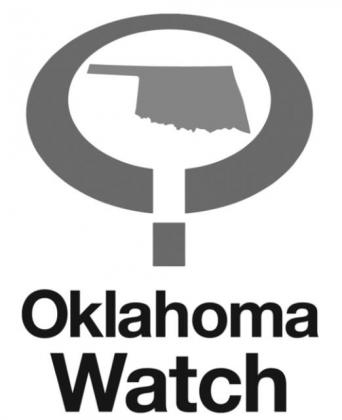Like many Oklahomans with an incarcerated family member, Sharla Halencak hasn’t seen her son Clinton in more than a year.
Halencak used to visit Clinton, who is serving a 12-year sentence for eluding a police officer, nearly every weekend. Visits became more difficult when he was transferred from the Northeast Oklahoma Correctional Center in Vinita, an hour’s drive from Halencak’s Tulsa home, to the Howard McLeod Correctional Center in Atoka. She last saw him in late 2019.
Due to COVID-19 concerns, the state Department of Corrections has canceled or heavily restricted family visitation since mid-March. Halencak has since relied on prepaid phone calls and handwritten notes to stay in touch.
“I haven’t been able to visualize my son,” she said. “So much of what goes in there is unreported, and seeing them we actually can visualize that they’re being kept safe and if something else is going on that we should know about.”
As Oklahoma inmates wait to get the COVID-19 vaccine, in-person visitation remains canceled indefinitely. But prisoners will soon gain access to technology that the public has used to stay connected during the pandemic.
Securus Technologies, the communications provider for the corrections department, has started installing WiFi and video visitation portals in prisons across the state. Securus spokesperson Jade Trombotta said in an email that inmates will receive free tablets this spring and gain access to video calls by the fall. A 20-minute video call will cost $5.95, about $2 more than a 20-minute phone call.
The tablets run a modified version of Android and can only access content approved by JPay, a subsidiary of Securus. Prison officials may monitor messages sent and received via the tablets. Video calling will only be available at portals installed in cell pods.
Prisoner advocates say video calls and tablets can be effective communication tools, but argue that high fees charged by Securus and competitor GTL financially exploit inmate family members who disproportionately face economic hardships. One-third of inmate families take on debt while supporting an incarcerated family member, according to a 2015 report by the Fines and Fees Justice Center
The technology, though expensive to use, often isn’t reliable. A 2017 National Institute of Corrections report on video visitation technology warned that many systems are poorly installed and plagued with bad video and audio quality
When Clinton was incarcerated in 2018 at the Washita County Jail, Halencak would regularly use video chat to talk with him. She said the connection was spotty at best, with little recourse if a called dropped or video connection ended early.
“One time the call dropped within the first two minutes,” she said. “I was able to get my money back that one time, but other times it froze up within the first three minutes and they said, ‘Oh well, you got it, you can still hear them.’”
Despite her previous poor experience, Halencak said she plans to use the technology regularly once it’s available.
The prospect of staying more connected without driving hours and going through prison security is also exciting for Chele Mickle, a Jenks woman whose brother Charles is incarcerated at the Davis Correctional Facility in Holdenville.
“I think video calls would be wonderful, especially for people that don’t have the means to travel,” Mickle said. “Or like myself, I have three children that are still in school, and since it’s not my boyfriend or husband, visits are not my top priority.”
Tablet Fees Add Up
Securus and competitor Global Tel Link say their tablets help inmates access education courses, more efficiently file grievances and stay connected to the outside world.
Research and advocacy groups have criticized the companies for charging abovemarket rates for services ranging from text messages to movie rentals.
A March 2019 Prison Policy Initiative report found that prison tablets are often unreliable and expensive to use. Securus and GTL guarantee the state corrections department a portion of tablet revenue and may end tablet service if the devices don’t generate enough revenue.
The U.S. corrections tablet industry is a lucrative business. After giving away more than 50,000 tablets to New York prisoners in 2018, Securus expected to generate $9 million in revenue over five years.
On Feb. 12, Oklahoma Watch submitted a public records request for the Oklahoma Department of Corrections’ service agreement with Securus Technologies. The request is currently under review by the agency’s legal department.

